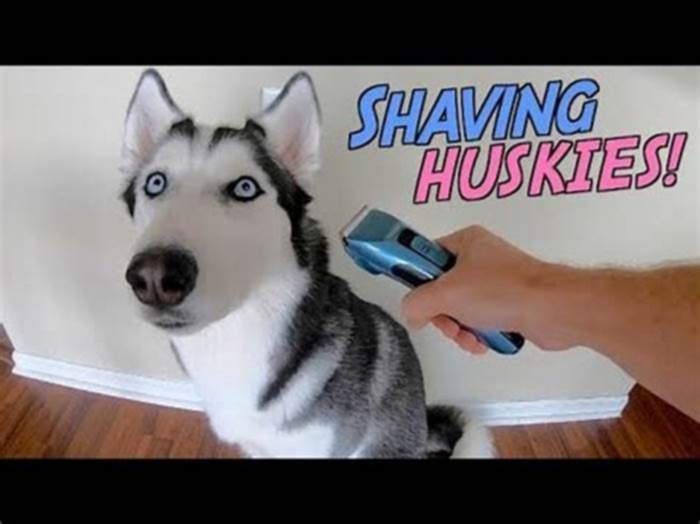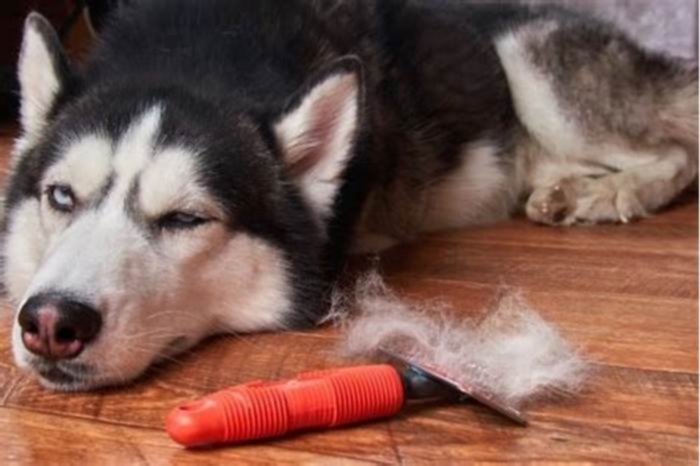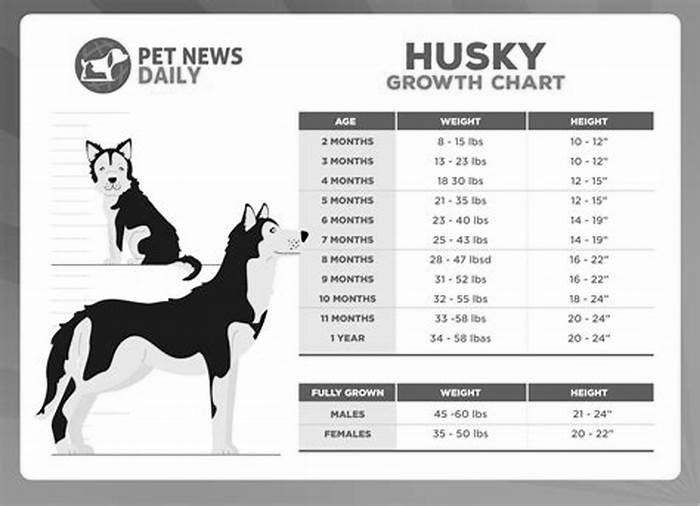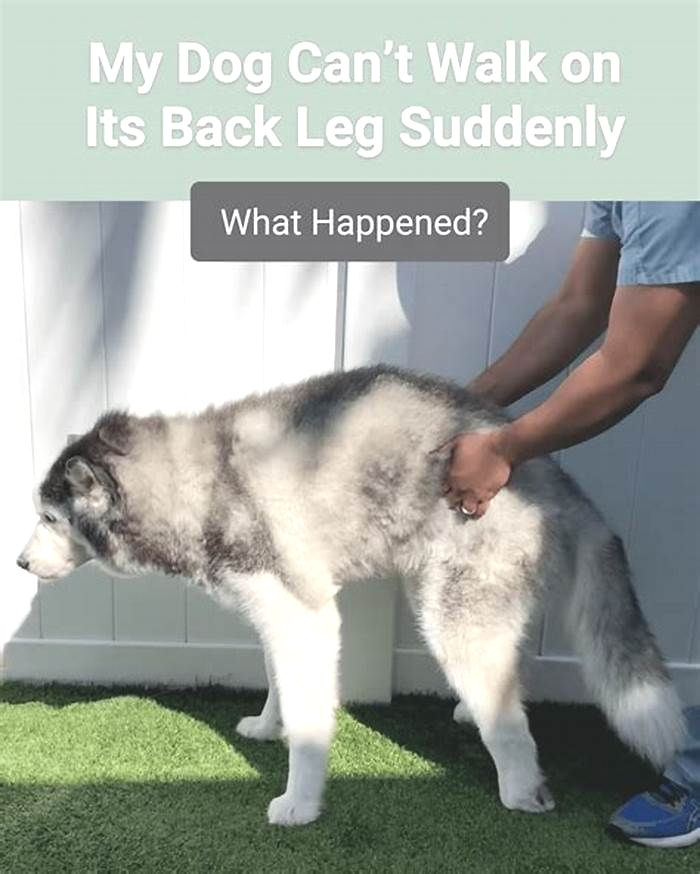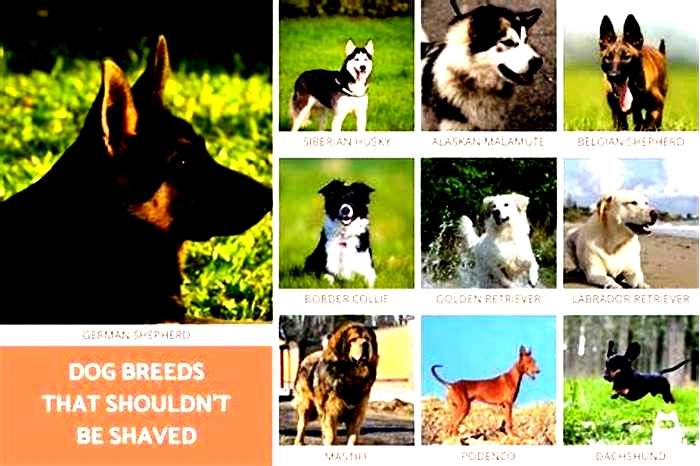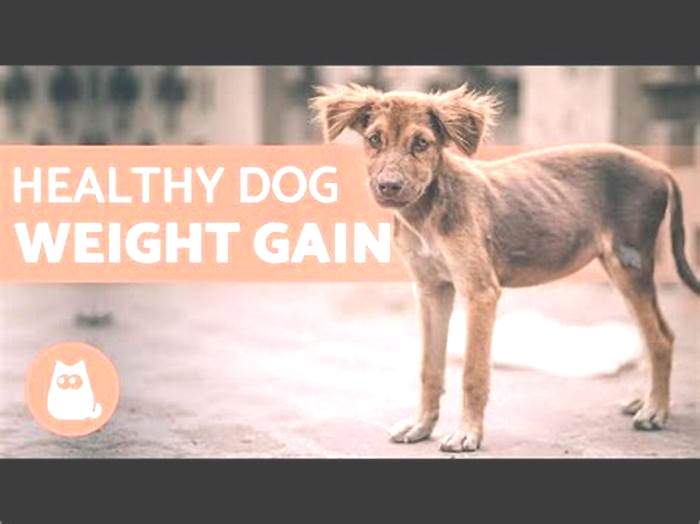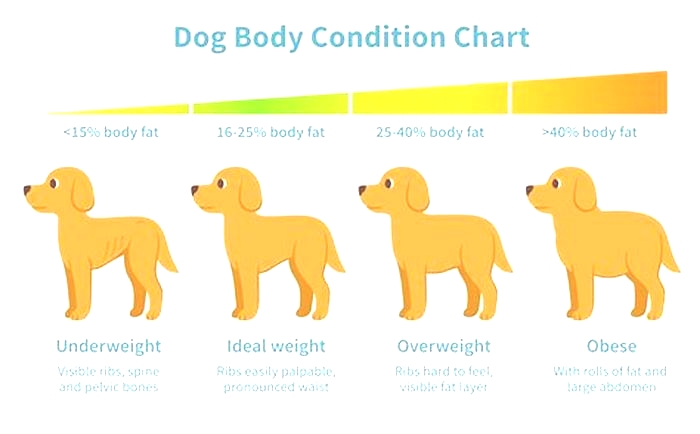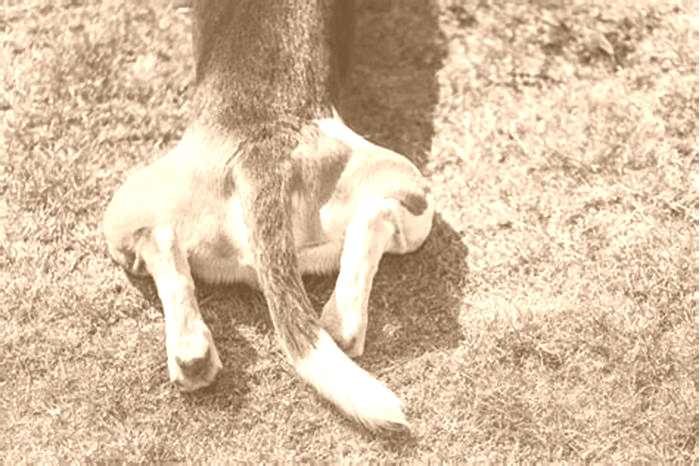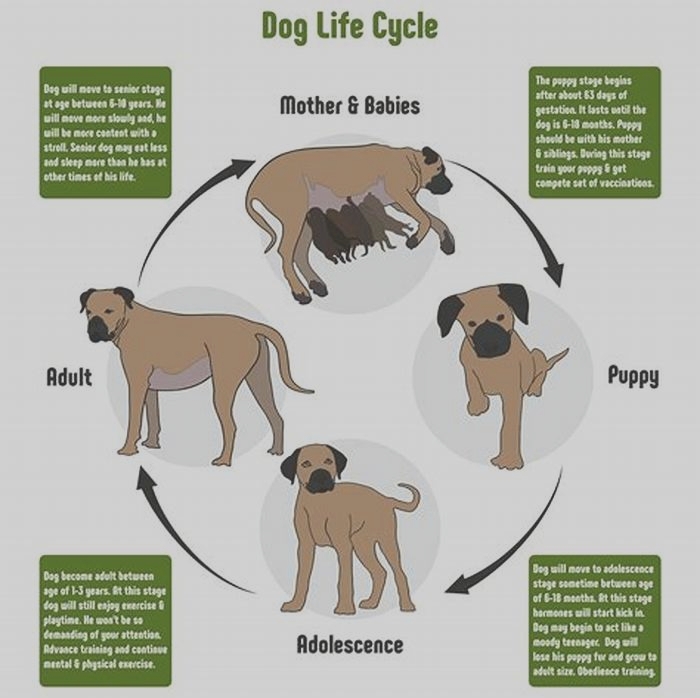Does husky hair grow back if shaved
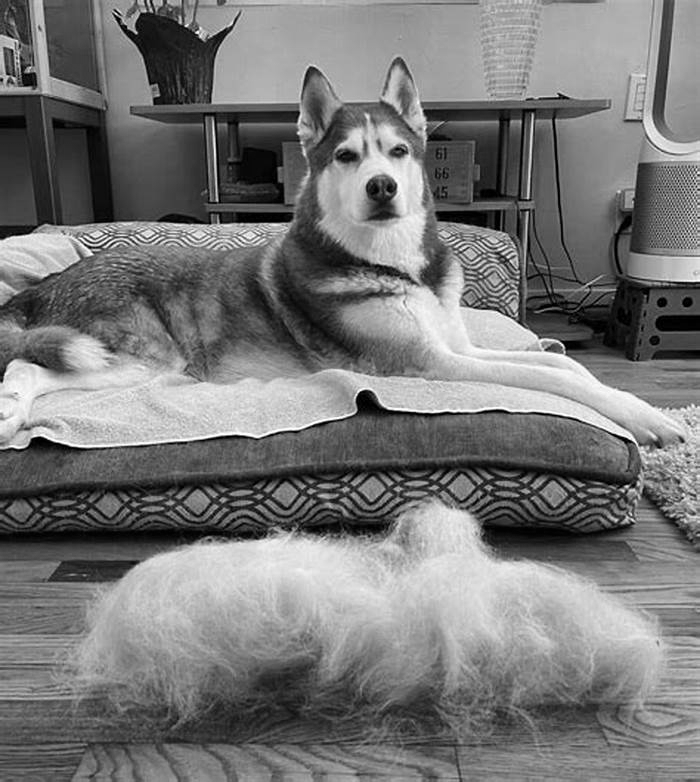
Husky Puppies Hair Tips: Will it Grow Back? Solutions!
Husky hair loss is a common problem for both male and female dogs. If your husky is starting to lose his hair, dont worry there are many things you can do to help him grow it back! In this blog post, we will discuss the causes of husky hair loss and provide some tips on how will husky hair grow back.
The Distinctive Feature of Husky

Huskies are known for their thick, luxurious coats. This coat shields them from the chilly temperatures in their native environment. The downside of this is that huskies shed a lot. Its not uncommon for a husky to lose up to two pounds of fur yearly! While shedding is typical for all dogs, some huskies may experience excessive hair loss.
Huskys coat has pretty much color combinations. The typical colors are black and white, but huskies can also be brown, red, or grey. They often have patterns in their fur, such as sable (a mix of black and brown), agouti (a blend of light and dark hairs), or piebald (patches of white and another color).
Under that stunning coat, huskies have a double coat. The outer coat comprises long, straight hairs, while the undercoat has shorter, denser hairs. This combination provides insulation against the cold and keeps your huskys skin healthy. The huskys fur also protects from the suns harmful UV rays. In fact, huskies are less likely to get sunburned than other dogs!
Misconceptions in Huskys Double Coat
Many husky owners tend to shave their huskies in the summer because they think it will help keep their dogs cool. However, this is a misconception! In reality, shaving your husky can do more harm than good.
Shaving a huskys coat removes the protective outer layer of fur, exposing the undercoat. In extreme cases, it can cause sunburn, skin irritation, and even heat stroke. Additionally, shaving your husky will not make them cooler it will only make them more susceptible to the heat.
Others believe that shaving a husky will make his fur grow back thicker and fuller. Unfortunately, this is also not true! Shaving your husky will not change the density or thickness of his fur. In fact, it may even damage the hair follicles, causing permanent hair loss.
The truth is, there is no need to shave your husky its fur serves to shield them from the heat in summer and the cold in the winter. If you want to help your Husky beat the heat, provide plenty of water and shade, and ensure he doesnt stay in the sun for too long.
The Danger in Shaving Huskys Coat
Shaving your husky is not only unnecessary it can also be dangerous. It will make husky more susceptible to diseases, such as cancer. One study found that dogs who underwent shaving had a higher risk of developing skin cancer than those not shaved. The researchers believe that shaving removes the protective outer layer of fur, exposing the skin to the suns harmful UV rays.
Furthermore, shaving your husky may bring permanent damage as it obstructs the shedding process of the coat, which can lead to painful matting. It is important to know that shaving a double-coated dog like a husky will not make the fur grow back thicker but can make it grow back patchy, thin, and uneven. In short, shaving your husky is risky and must be avoided at all costs.
Causes of Husky Hair Loss
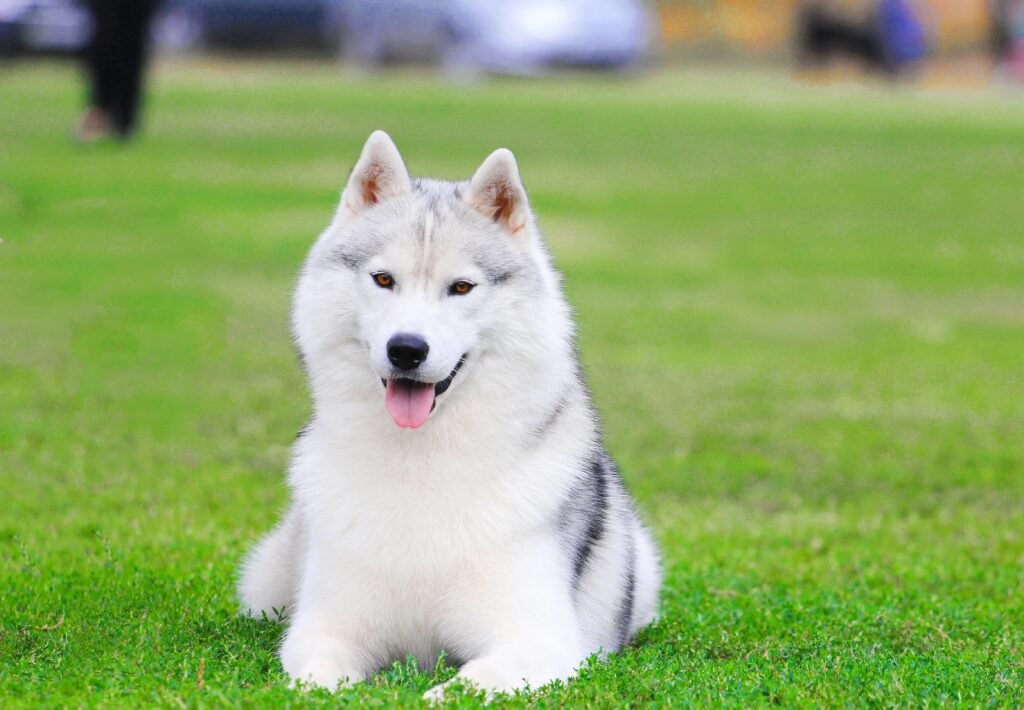
Aside from believing the misconception that you shave your husky, there are other causes of dog hair loss. It can be due to health problems or a side effect of certain medications. These includes:
![]()
 Blowout
Blowout
One common cause of hair loss in huskies is called blowout. Blowout occurs when the undercoat sheds in large clumps, usually due to stress or a change in season. While blowout can be alarming, it is perfectly normal and will not cause any permanent damage to your dogs fur.
The most common symptom of a blowout is large patches of hair loss, usually on the back or sides of the body. In some cases, the hair may also become thin and brittle. If your husky is experiencing blowout, dont worry it will eventually grow back! To help your dog through this process, make sure to brush him regularly and give him plenty of baths. It will assist in removing any loose hair and avoid matting.
![]()
 Allergies
Allergies
Allergies can be due to anything from environmental factors to certain foods. If your husky is allergic to something, it may scratch excessively, leading to hair loss. Allergies can also cause inflammation and skin irritation, making your dogs coat look dull and lifeless.
Certain medications, such as steroids and antibiotics, can also cause allergies. The side effects of these drugs can include hair loss, itching, and rashes. If you think your huskys hair loss may be due to allergies, talk to your vet about possible treatment options.
![]()
 Hormonal Imbalances
Hormonal Imbalances
Hormonal imbalances, such as hypothyroidism, can also cause hair loss in huskies. It is because the hormones responsible for hair growth are out of balance. Symptoms of a hormonal imbalance include thinning hair, dry skin, and fatigue. Mostly affecting middle-aged and older dogs, hormonal imbalances are usually diagnosed with a blood test.
Cushings disease is another condition that can cause hair loss in huskies. This disease occurs when the body produces too much of the hormone cortisol. Symptoms include hair loss, weight gain, and increased thirst and urination. Cushings disease is typically diagnosed with a urine test.
If you think your huskys hair loss may be due to a hormonal imbalance, talk to your vet about possible treatment options.
![]()
 Parasites
Parasites
Hair loss in huskies can also be due to parasites like fleas and ticks. These pests bite and feed on your huskys blood, which can cause irritation and inflammation of the skin. Additionally, parasites can transmit diseases to your husky, further complicating its condition.
To prevent parasites from causing hair loss in your husky, regularly treat him with a quality flea and tick prevention medication. Check your husky for parasites regularly, especially if he spends a lot of time outside.
![]()
 Stress
Stress
Like humans, dogs can also experience hair loss due to stress. Stress can be anything from a routine change to a traumatic event. When your husky is stressed, his body releases hormones that can lead to hair loss. Symptoms of stress-related hair loss include patches of baldness, excessive shedding, and thinning hair.
Stress can also cause other health problems in dogs, such as anxiety and digestive issues. If you think your huskys hair loss may be due to stress, try to identify the source of stress and remove it from the environment. This way, you can help your dog feel more relaxed and comfortable.
![]()
 Age
Age
As your husky ages, it may start to experience hair loss due to a decrease in hormones. It is a normal aspect of the aging process and is not a cause for alarm. Older husky may also start to develop gray hair. If your dogs hair loss is due to age, there is no need for treatment. Just brush and bathe your husky regularly to keep its coat looking its best.
However, if your huskys hair loss is excessive or accompanied by other symptoms, such as weight loss or changes in behavior, it could signify a more serious health condition. In this case, you should take your dog to the vet for an examination.
Will Husky Hair Grow Back? Tips for Husky Hair Growth

It is a question that most first-time husky parents ask. And the answer is, unfortunately, there is no single answer to this question. The rate of husky hair growth and whether or not it grows back depends on the underlying reason for the hair loss.
The husky hair may grow but not as thick, or the hair may not grow back at all. Furthermore, it may grow, but it takes a long time for the hair to reach its full length. The important thing is that you must be patient and allow your husky to heal.
Here are some tips that may help speed up the process:
![]()
 Keep Your Husky Well-Groomed
Keep Your Husky Well-Groomed
Regular grooming will help to stimulate hair growth and also help to remove any dead hair and skin cells that may be blocking the hair follicles. Furthermore, it will also keep your huskys coat healthy and free from tangles or mats.
You can achieve this by brushing your huskys coat daily and bathing him every week. Its important to use a mild dog shampoo to avoid further irritating the skin. Additionally, you should also trim your huskys nails regularly. Overgrown nails can lead to discomfort, and your dog scratches himself excessively, further aggravating the skin and hair loss.
![]()
 Feed Your Husky a Healthy Diet
Feed Your Husky a Healthy Diet
A nutritious diet helps to promote healthy hair growth. Make sure to give your husky plenty of protein, which is essential for cell regeneration. You may add fish oil supplements to your huskys food. Fish oil contains omega fatty acids and can help to improve the condition of the skin and coat.
In addition, you should also make sure that your husky is getting enough vitamins and minerals. You can do this by feeding them a balanced diet or giving them a daily multivitamin supplement.
![]()
 Use a Humidifier
Use a Humidifier
If the air in your home is dry, it can further aggravate your huskys skin and hair loss. To help relieve the dryness, you can use a humidifier in your home. It will help to add moisture to the air and may improve the condition of your huskys skin.
Place the humidifier in your huskys room so that he can benefit from the moist air. You should also ensure keeping the room well-ventilated, so mold does not grow.
![]()
 Invest in Good Quality Shampoo and Conditioner
Invest in Good Quality Shampoo and Conditioner
When bathing your husky, its important to use a good-quality dog shampoo and conditioner. It will help soothe the skin and add moisture to the coat. Look for products that contain natural ingredients, such as aloe vera or oatmeal. These ingredients can help to relieve itchiness and dryness.
Avoid products that contain harsh chemicals or fragrances. These can further irritate the skin and may cause additional hair loss. Furthermore, you should also avoid using human shampoo and conditioner on your husky, as these products are safe for use on dogs.
![]()
 Give Your Husky Time
Give Your Husky Time
Hair loss in your husky can be a stressful situation. He may feel insecure and anxious, which can further aggravate the condition. So, being patient and giving your dog time to recover is important.
A quality time spent with your husky will help to build his confidence and make him feel loved. It will help them relax and improve their skin and hair condition. Dont get discouraged if you dont see results immediately. With time and patience, your husky will recover, and his hair will grow back.
Other Remedies That May Help Growing Husky Hair

Several oils and juices may help improve the condition of your huskys skin and hair. These are safe and proven effective in stimulating hair growth among dogs. These include:
![]()
 Coconut Oil
Coconut Oil
Coconut oil contains fatty acids, which can aid in the moisturization of the skin and coat. It has lyric acid, which has antimicrobial properties that can help to treat skin conditions. You can apply coconut oil topically to the affected area or add it to your huskys food.
![]()
 Aloe Vera Juice
Aloe Vera Juice
Aloe vera juice contains nutrients that can help to soothe the skin and promote healing. It also has moisturizing properties that can help to prevent dryness and itchiness. Give your husky aloe vera juice or apply it topically to the affected area.
![]()
 Lavender Oil
Lavender Oil
Lavender oil has antibacterial and anti-inflammatory qualities that can aid in treating skin ailments. It can also help to soothe the itchiness and dryness. You can add a few drops of lavender oil to your huskys shampoo or apply it topically to the affected area.
![]()
 Olive Oil
Olive Oil
Olive oil contains fatty acids that can aid in skin hydration. It also has antioxidant properties that can help to protect the skin from damage. If you find your husky losing hair, massage olive oil onto its scalp.
![]()
 Apple Cider Vinegar
Apple Cider Vinegar
Antifungal and antibacterial characteristics of apple cider vinegar can aid in treating skin disorders. It also contains nutrients that can help to improve the condition of the skin and coat. Add just several teaspoons of apple cider vinegar to your huskys water or apply it to the affected region with a cotton ball.
![]()
 Vitamin E Oil
Vitamin E Oil
Vitamin E oil is an antioxidant that can help to protect the skin from damage. It also has moisturizing properties that can prevent dryness and itchiness. If you note any bald spot on your huskys body, you can apply vitamin E oil to the affected area. Vitamin E oil is available in capsules, which can be punctured and the oil squeezed out.
Factors Affecting Husky Hair Growth
Several factors can influence husky hair growth rates. These include:
- Age: Younger huskies tend to have a faster rate of hair growth than older ones. It is because they have more active follicles and higher levels of hormones.
- Breed: Some breeds of husky, such as the Alaskan Husky, have a thicker coat that grows slower. It is because they have a higher number of follicles per square inch.
- Season of the year: Huskies tend to shed more during the spring and fall. It is because the temperature change stimulates the shedding process. During this time, you may notice that your huskys hair grows at a slower rate.
- Depth of coat: Huskies with a double coat usually have a slower rate of hair growth. It is because the outer coat protects the inner coat, where most growth occurs.
- Type of coat: Huskies with a silky coat usually have a faster rate of hair growth than those with a woolly coat. The silky coat does not need to be as thick to protect the dog from the elements.
- The area affected: The rate of hair growth will also depend on the area affected. If your husky has lost hair on his back, the hair in that area will grow more slowly than the hair on its head. It is since the hair on the back is not stimulated as much as the hair on the head.
- Overall health: The overall health of your husky can affect his hair growth. If he is healthy, his hair will grow at a normal rate. However, if he is sick or has a health condition, his hair may grow slower.
Frequently Asked Question
Q. Can I cut my huskys hair?
Cutting your huskys hair is generally not recommended, as this can further damage the hair follicles. If you must cut its hair, use sharp scissors and only trim the hair that is already damaged. Avoid cutting too close to the skin.
Q. Is it possible to fix husky hair loss?
Husky hair loss is often a sign of an underlying health condition. If the hair loss is due to parasites, allergies, or skin infections, it is treatable with the proper treatment. However, if the hair loss is due to hormonal imbalances or genetic factors, it may not be entirely possible to fix the problem. Nevertheless, some treatments can help improve the condition of your huskys skin and hair. With time and patience, you may see some regrowth.
Additionally, if your husky is experiencing chronic hair loss due to health conditions like alopecia, there is a possibility that the hair may not grow back. In such cases, you should focus on making your husky comfortable and helping them to feel secure.
Q. Is it possible for husky hair to grow back after having a hotspot?
Hotspots are a common skin condition in dogs that can cause hair loss. However, the hair will usually grow back once the hotspot has healed. Hair generally takes several weeks to regenerate entirely. If the hotspot is severe or recurs frequently, it may lead to permanent hair loss.
Q. Why hasnt my huskys hair grown back after surgery?
Hair loss after surgery is often due to the stress of the surgery itself. It can take several weeks or even months for the hair to grow back completely. Additionally, if your husky has undergone radiation therapy or chemotherapy, this can also lead to temporary hair loss. It will usually grow back once the treatment has concluded. Though it may take some time, be patient, and eventually, you will see your huskys beautiful coat again.
Q. How long does it take for my huskys hair to regrow after shaving?
Hair regrowth after shaving depends on the length of the hair shaved off. After shaving, it normally takes six to eight weeks for a huskys hair to regrow. However, this can vary depending on the individual dog. Some dogs coats may take longer to regenerate, while others hair may regrow faster. It is important to note that shaving a double-coated breed like the Siberian husky is not recommended as it can lead to health problems.
Q. Can I dye the hair of my husky?
Dyeing your huskys hair is not recommended as it can harm their skin. Additionally, the chemicals in hair dye can strip away the natural oils that protect the skin and coat. If you must dye your huskys hair, use a natural, non-toxic hair dye. It is also advisable to test the dye on a small area of fur first to check for any adverse reactions.
Final Thoughts
Husky hair loss can be a frustrating and upsetting experience. However, it is important to remember that hair loss is often due to an underlying health condition. With the proper treatment, you may see some regrowth. Be patient and remember that it may take some time for the hair to grow back completely. In the meantime, focus on making your husky comfortable and help to feel secure.
Do you have any experience with husky hair loss? Wed love to hear from you in the comments below!

